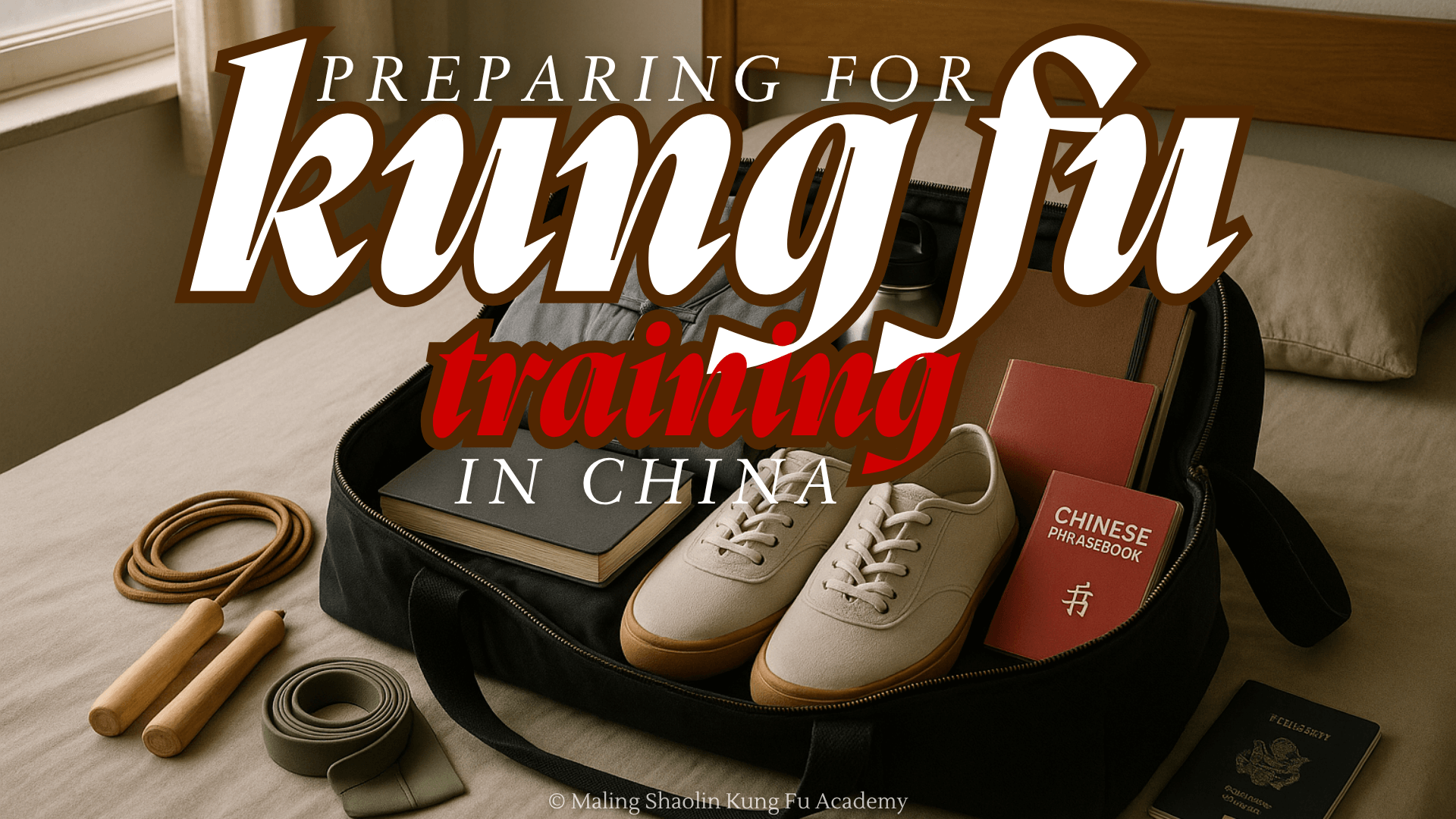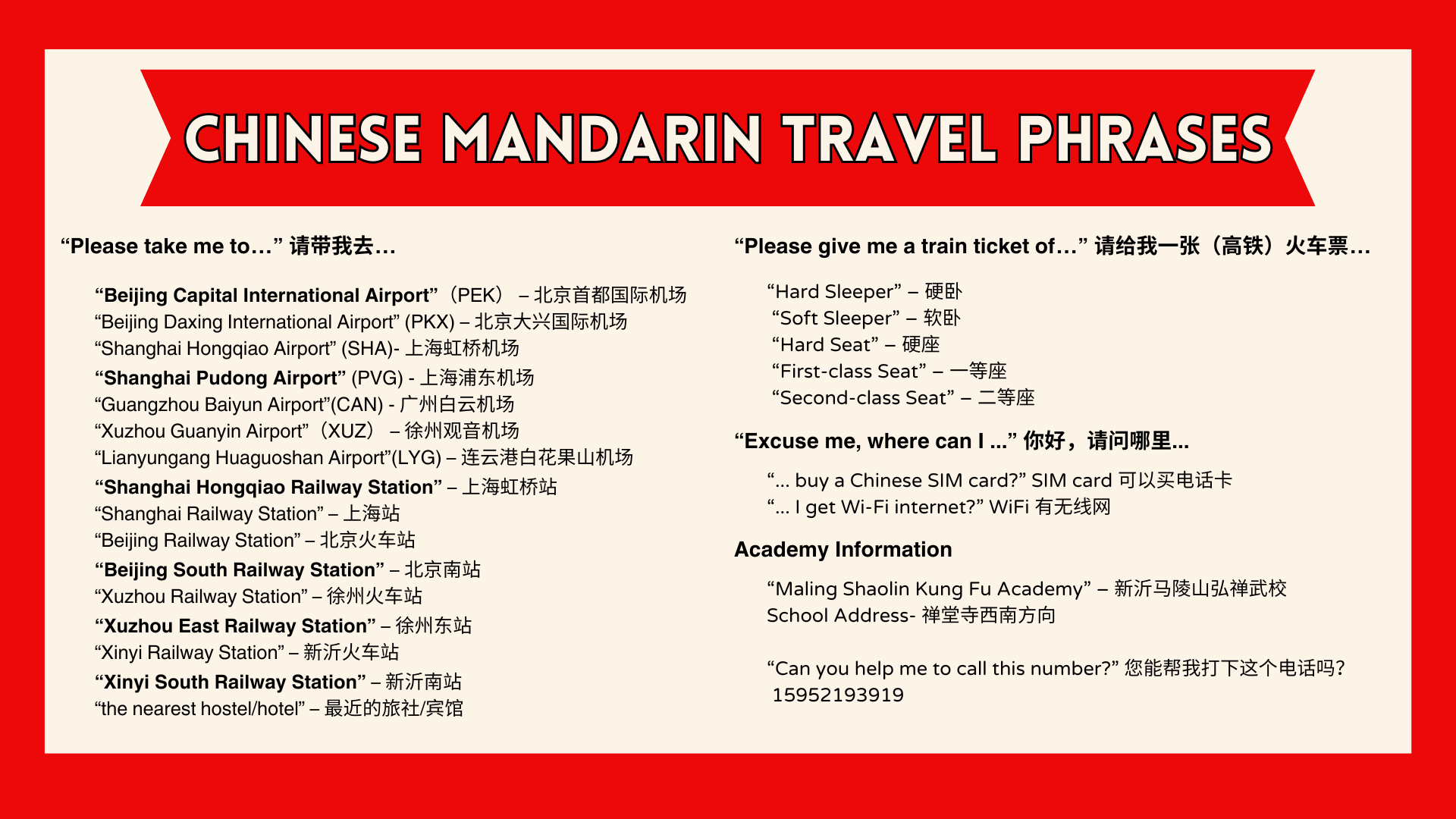BEFORE YOU COME
Personal Preparation
How to Prepare for Kung Fu Training (Especially in China)
You don’t need any prior training or athletic background to begin kung fu, but preparing your body and mindset before arriving can make the transition smoother. Light physical conditioning—such as running (1–2 km a few times a week), cycling, swimming, or regular push-ups, sit-ups, pull-ups, and jump rope—can help build stamina, strength, and endurance.
Flexibility and mobility also play a key role in preventing injuries and supporting recovery. Daily stretching, yoga, or light mobility exercises can improve your range of motion and prepare your hips, legs, and back for stances like horse stance and front kicks. You don’t have to be flexible when you arrive, but getting into the habit of stretching consistently will give you a strong head start.
Mental preparation matters too. Try waking up earlier, following a steady routine, and maintaining a healthy diet in the weeks leading up to your trip. These small habits can make a big difference once you begin training full-time.
Culture Tips

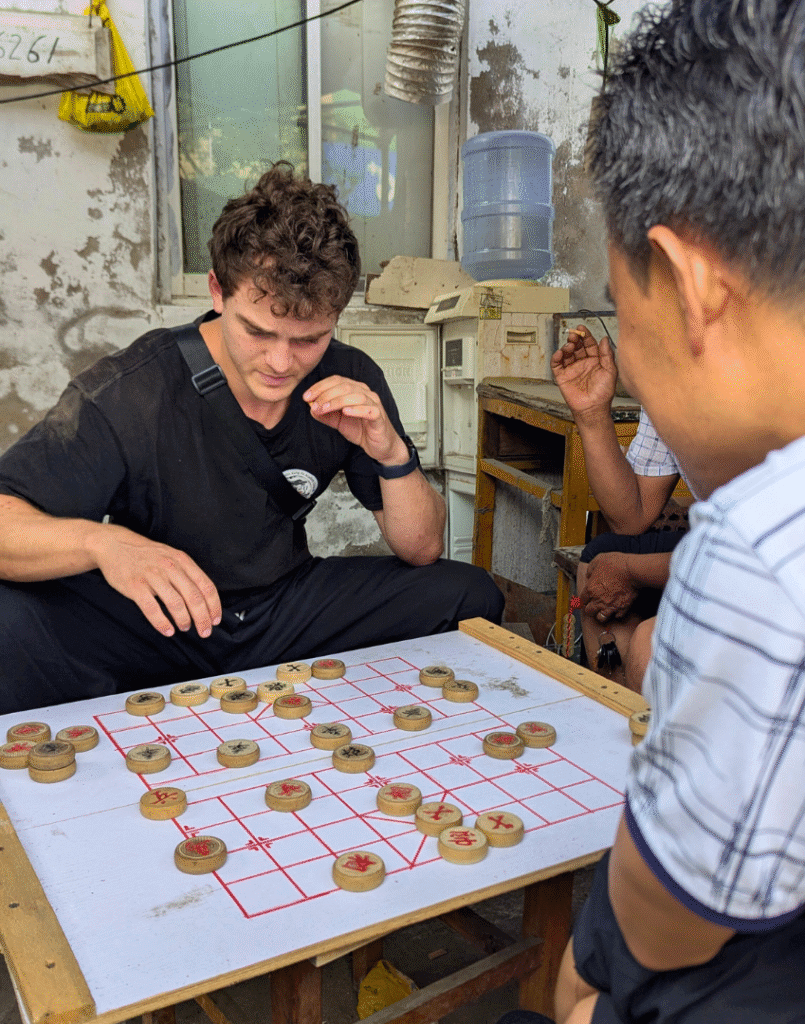
There’s no doubt the culture in China is different than most places in the world. The country is very much ‘one-people.’ This means that while our similarities have bred rich traditions, unique cuisines, and strong internal ties, many Chinese people—especially in rural regions— do not have much experience with or understanding of outside cultures. As a result, your presence may naturally attract attention.
Having worked with foreign students for nearly two decades, the staff at Maling Shaolin Kung Fu Academy is accustomed to this cultural exchange. Within the school is a unique microcosm representing a vast array of the world’s cultures, ethnicities, and beliefs. But once you step outside the school grounds, especially in the countryside or smaller cities, you may find yourself quite the curiosity! Be prepared for paparazzi-style photos and videos, open staring (all friendly interest and awe), and people trying to talk to you in Chinese. A smile and patience go a long way—and you might even make some new friends!
It’s also good to know that ideas of privacy, personal space, and politeness may differ from what you’re used to. Locals might comment openly on your appearance, age, or actions—not out of offense, but as part of casual conversation. Public settings can feel crowded and loud by Western standards, and customer service might come across as blunt or overly enthusiastic. This isn’t bad etiquette; it’s simply cultural difference.
Remember, you’re a guest in another world. Maintaining an open mind, showing kindness, and observing local behavior with curiosity (not judgment) will help you blend in and be received warmly. Small gestures—like learning a few words in Mandarin, accepting things with two hands, or greeting elders with a slight nod—can have a big impact.
To learn more about everyday customs and how to navigate cultural moments with ease, visit our Chinese Food & Culture page.
Documentation
VISA
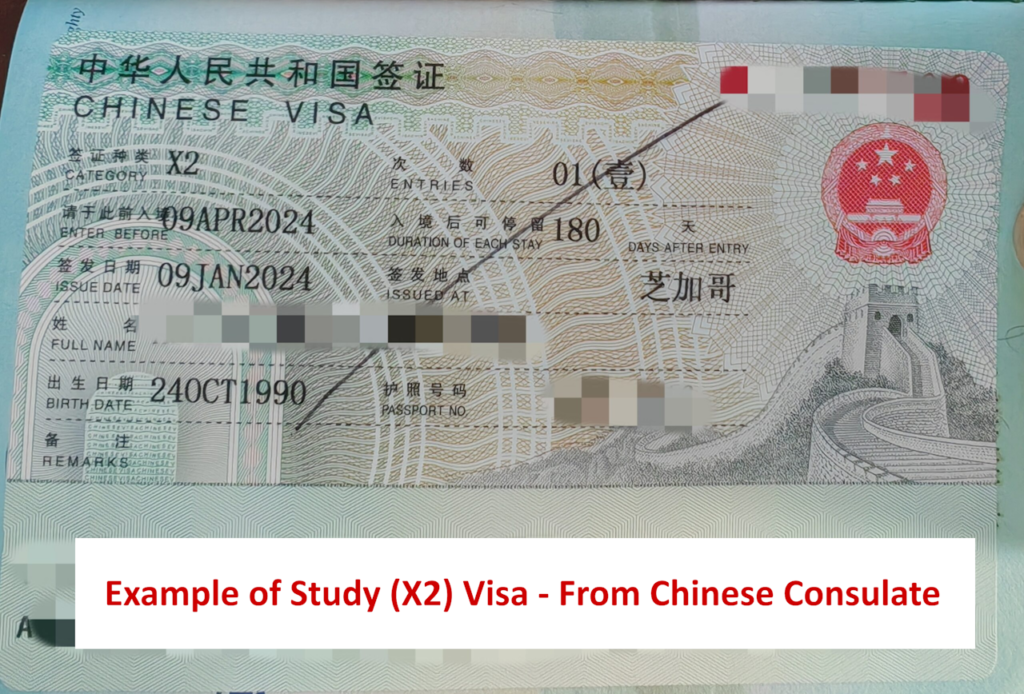


To enter China, you will need a visa. We recommend you apply for a Visiting Visa (F) or short-term Student Visa (X2) at your nearest Chinese embassy. You can also apply for the Tourist Visa (L) for short-term stays of 1-3 months. Here you can find the locations of Chinese embassies around the world. Make sure to calculate enough time for the issuing process.
Visa Extension: If you wish to study at the Academy for a longer period than you initially planned, we can assist you with a visa extension process. An experienced translator of the Academy will take you to the local Foreign Affairs/Visa Office, and apply for an extension there. The cost of visa extension varies between countries, however, in general, it ranges from 200¥-500¥ CNY (for US citizens the cost is a bit higher). If you have any more questions about the visa please feel free to contact us.
30 Days Visa-Free: China has taken significant steps to boost tourism and international business relations by expanding its visa-free entry policies. In late 2024, China announced an expanded 30-day visa-free entry policy for 38 countries. See the full details and country list in our blog post below:
TRAVEL INSURANCE
We recommend you purchase medical insurance from a major provider that will cover injuries and illnesses that may occur during your stay in China. The academy assumes no responsibility for injuries occurring before, during, or after training, while under the academy’s supervision. Regarding this matter, you should consult your insurance company or a professional travel agency.
That being said, we take safety seriously and prioritize our student’s well-being. We recommend you do not take instruction from other students unless advised to do so by a Master. For your safety, please adhere to Master instruction only. Should you have any concerns, limitations, or questions, please let us know. Some aches, pains, strains, and bruises are a part of kung fu training. In your first month or so, you will feel sore and tired. This is your body becoming used to the sudden increase in activity and intensity of movement and exercise.
VACCINATIONS
There are no vaccinations required to enter China, except for a Yellow Fever vaccination if you are arriving from an infected area. The coronavirus vaccine is no longer required for entry into China. It is best to consult your doctor or a travel clinic in advance before leaving. There may be other optional vaccinations they recommend, such as Hepatitis A.
In China, local clinics and hospitals are well-equipped and have many Western, Chinese medicines and treatments. It is convenient to have a medical kit of your own, with things like sunscreen, insect repellent, band-aids, muscle soothing creams or patches, painkillers for headaches, cream or ointment for cuts and bruises, upset stomach or nausea medication, any prescription or allergy medication, and multi-vitamins or protein supplements if taken.
Travel Help
For a first-time visitor, finding your way around in China may seem like a daunting task. However, travel for foreigners in China has never been easier! Train stations now accept foreign passports when entering and scanning onto your platform. When purchasing your ticket online you will be required to enter your passport information. Then, all of your ticketing information is attached to your passport in their system! To book tickets, we recommend Rome2Rio for route planning and Trip.com for ticket purchasing. It allows you to find train, bus, and plane tickets anywhere in the world and gives you multiple routes, timings, and transportation options to get from Point A to Point B.
Please note, that most high-speed trains travel from Shanghai Hongqiao Railway Station and Beijing South Railway Station to Xinyi South Railway Station with a connection in Xuzhou East Railway Station. There is only one direct train per day from both Beijing South and Shanghai Hongqiao.
We offer pick-up services to get to the academy from Xuzhou or Xinyi. There is a $60 fee for pickup from Xuzhou while pickup from Xinyi is free of charge. For more information about travel and transportation, please visit our Transportation page.
MANDARIN 101
While some basic English may be understood, most Chinese people outside of major cities will have a hard time understanding you. Should you need assistance when traveling, use the following phrases to help make your way to our academy. You can click the images to enlarge it and print it out to take with you (or just keep it on your phone).
DIGITAL PREP
Before arriving in China, it’s essential to prepare your digital setup—many everyday apps you may rely on won’t work without a VPN, and certain Chinese apps are crucial for daily life. Two of the most important apps to download are WeChat and Alipay. In China, these aren’t just messaging or payment apps—they’re your go-to tools for nearly everything: chatting, paying for meals, booking trains, scanning QR codes, even accessing metro systems. Foreigners can often link their international bank cards to both apps, though we recommend setting them up before arrival to make onboarding smoother.
When it comes to translation, Google Translate is useful but blocked in China unless you’re using a VPN. However, you can download the Chinese language pack in advance, which allows you to use its core functions offline. For fully offline and reliable alternatives, apps like Pleco (especially strong for Chinese-English dictionaries) or iTranslate are great options for on-the-go help with signs, menus, and simple conversations.

Many popular Western apps and websites are inaccessible in mainland China without a VPN. This includes Google (Search, Gmail, Maps, YouTube), Facebook, Instagram, WhatsApp, TikTok, Spotify, Reddit, Netflix, and others. To access these, you’ll need to install a reliable VPN (Virtual Private Network) before entering the country, as VPN apps are blocked in Chinese app stores. As of 2025, the most consistently functioning VPNs in China are LetsVPN, Astrill, and VyprVPN. Others like NordVPN, Surfshark, ExpressVPN, and Private Internet Access (PIA) often encounter connectivity issues or are blocked entirely.
If you don’t have a VPN or prefer to use local services, there are solid alternatives. Apps like Weibo or Xiaohongshu (Little Red Book) serve similar purposes to Instagram or Reddit. For navigation, Amap and Baidu Maps are widely used (although they’re in Chinese), and Didi functions like Uber. For booking hotels, flights, or trains, Ctrip (Trip.com) is one of the most foreigner-friendly apps available.
In short, we recommend installing WeChat, Alipay, a translator app with offline capability, and a trusted VPN before you arrive. These tools will make your transition into daily life in China smoother and help you stay connected while respecting the local digital ecosystem.
SIM CARDS & CONNECTIVITY IN CHINA
Foreigners are currently unable to purchase new SIM cards in most parts of China without a residence permit, which makes airport SIM card booths your best and sometimes only option. We strongly recommend purchasing a prepaid SIM card at the airport upon arrival in China. These airport kiosks are accustomed to international travelers and usually offer flexible packages with data, local calling, and short-term validity. Without a local number, it may be difficult to verify and use essential apps like WeChat, Alipay, or Didi. If you miss the airport opportunity, getting a SIM card later may be difficult or even impossible unless you already have residency documentation—so don’t delay!
Some students have also found success using international eSIMs, which can be purchased and activated online before your trip. While coverage and pricing vary, these eSIMs can be a convenient backup if airport options are limited or unavailable. Keep in mind that while the academy provides free Wi-Fi throughout campus, reliable public Wi-Fi is extremely rare once you leave the school grounds. In most towns and villages, cafés, restaurants, and shops do not offer internet access—so having a functioning SIM with data is essential if you plan to travel or stay connected during your free time.
Packing & Tips
PACKING LIST
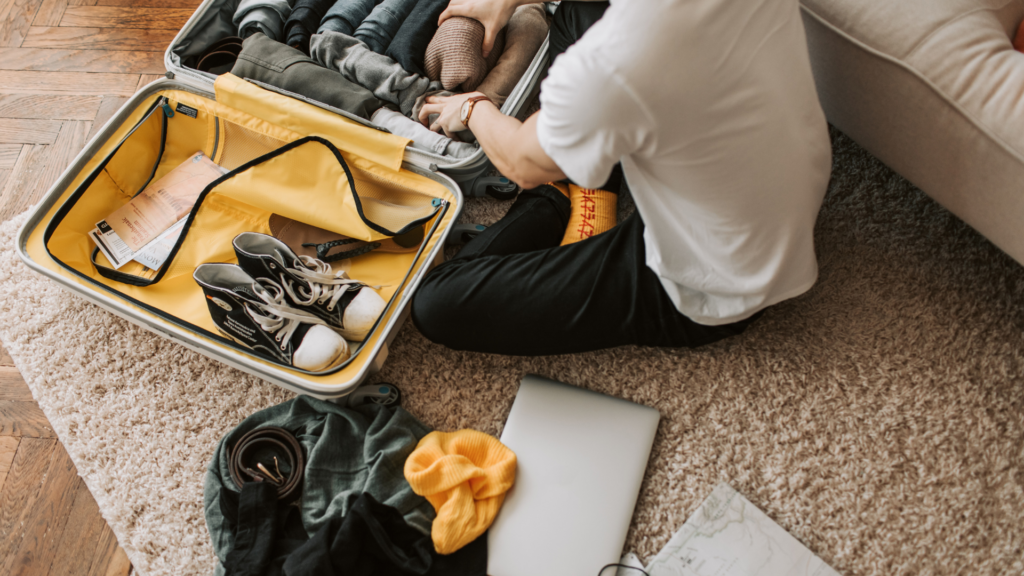
This is not a complete list but it might help you when deciding what to bring. You can find a seasonal breakdown of items to pack on our Climate Page:
First, do not forget to bring your passport and extra passport photos for registration at the academy and the local police office. Note: when traveling in China outside of the school, it is suggested you carry your passport with you for identification.
For training, students are required to wear long, loose-fitting trousers—preferably in dark colors (light-colored pants are not recommended for the summer as sweat can make them transparent!). Shorts are not permitted during training, and we also ask that students avoid crop tops, sports bras, or any clothing that is overly bright, patterned, or distracting. Outside of class, students are welcome to wear whatever they like.
- For winter, bring a few warm sweaters or layers for both training and free time. A warm jacket, thermal underwear, or a tracksuit are recommended to stay comfortable in colder months.
It will be useful to bring a pair of running shoes for daily jogging and stamina training. While the school provides traditional Feiyue kung fu shoes as part of the uniform (worn during standard training), many students prefer to use their own running shoes for morning runs and then change into Feiyue shoes afterward for class.
It is also advisable to bring a power adapter if you plan to bring electrical equipment like a laptop or phone charger. UK-Chinese or EU-Chinese adapters are inexpensive and easy to find locally, but it’s helpful to bring at least one with you.
You may like to bring books in your native language—either for reading during downtime or to help learn Chinese. English-language books and non-Chinese reading materials can be difficult to find here.
*Please Note: If you are taking the train within China, there is a size limit on aerosol spray cannisters of 100ml. This applies to ALL forms of aerosol (deodorant, hair spray, sunscreen, baking spray, cleaners, etc.). If you bring any aersol containers over 100ml, even if they are not full, the security staff will confiscate it.
Additionally, while pocket knives with a blade under ~60 mm (2.4 inches) is technically permissable, students have reported knives of all sizes getting confiscated by train security, so it is best not to bring any form of knife, even small Swiss Army Knives.
The school provides each student with a Welcome Kit on arrival. This includes essentials like a large bottle of water and toilet paper (especially useful for late-night arrivals), and a welcome letter. Each room is provided with bedding, including seasonal blankets/sheets, a pillow, and a heating pad for winter. Students also receive a kung fu school uniform and a kung fu training staff for long-term students (3 months or more).
Don’t forget that most of the items you will need can also be bought in the nearest town or the academy’s shop (such as small towels, sun hats, basic toiletries, etc.). If you pack your suitcase by keeping in mind that this is a Kung Fu training academy and not a holiday camp or a luxury hotel, you should have no problem fitting all of your necessities. Feel free to print off the packing list below to check off as you get ready for your trip! (Click the image to enlarge)
SCHOOL UNIFORM
Keep in mind while packing that at Maling Academy you will wear a school uniform at least 2 training days of the week. You can also optionally choose to wear a monk suit an addional 2 training days for a total of 4 uniform days.
Wearing uniforms at a kung fu school in China is more than tradition—it’s part of the everyday structure found in nearly all schools across the country. Whether it’s a public school, private academy, kung fu school, or even a dance or performance program, students in China are expected to wear uniforms. This practice creates a shared sense of discipline, focus, and equality among students, removing distractions and encouraging everyone to take training seriously.
In the context of martial arts, especially in the Shaolin tradition, uniforms are also a sign of commitment. They reflect a student’s respect for the art, their teacher, and the training space. Wearing a uniform helps reinforce the mindset of being part of something larger than oneself—of stepping into a role where humility, effort, and consistency matter. Whether you’re in the standard training uniform or the optional monk suit, wearing it properly and with intention helps connect you to the long-standing culture of kung fu in China.
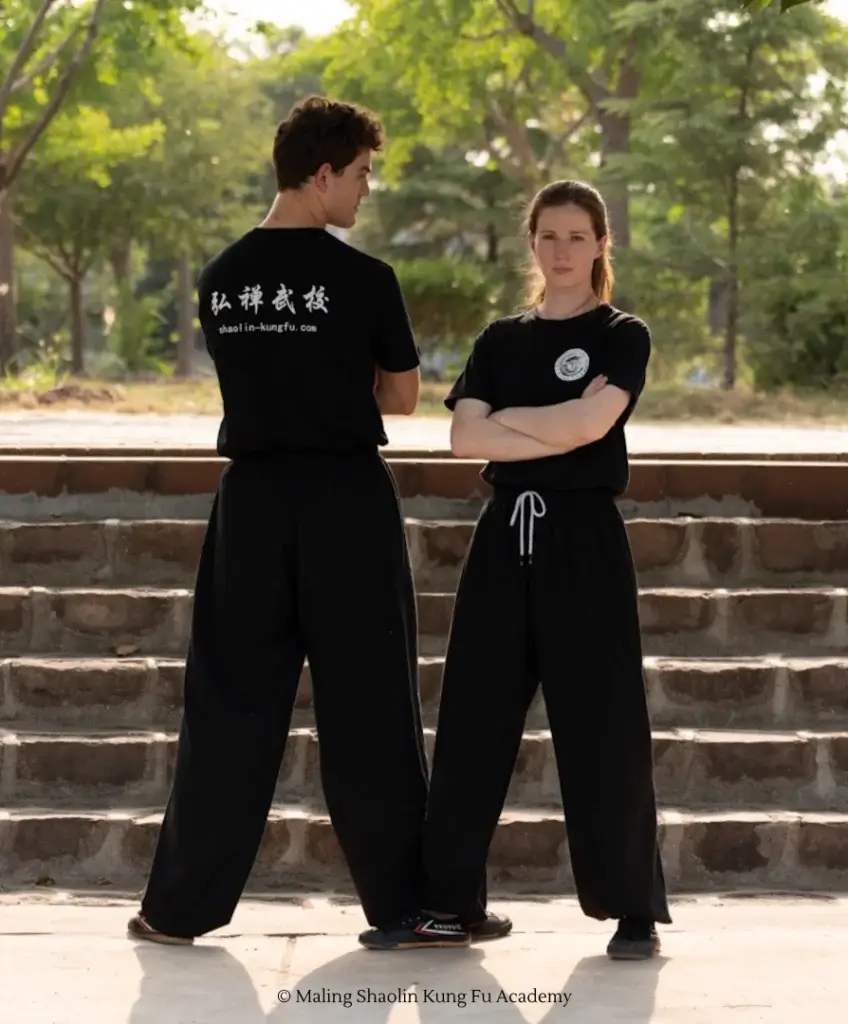
The school uniform is included in the standard tuition for students staying 1 month or longer (not included in special discounted rates unless otherwise specified). It consists of:
High-quality natural-fiber black kung fu pants, sourced from Dengfeng, the home of the Shaolin Temple
A black Maling Academy T-shirt featuring the school logo
A pair of Feiyue kung fu shoes, the standard footwear used by Shaolin warrior monks and martial artists around the world
Currently, there are two mandatory uniform days per week: Monday and Thursday. Students are expected to wear the full school uniform during these sessions. Outside of uniform days, students must still follow clothing guidelines for training (long pants, no shorts, no crop tops, no loud colors) but may wear other simple, functional, loose-fitting training wear.
Uniforms help establish consistency, focus, and a shared sense of purpose among students. They reduce distractions, encourage discipline, and create a respectful training environment. Most importantly, they allow students to fully enter the mindset of kung fu practice—where the emphasis is placed not on how you look, but how you train.
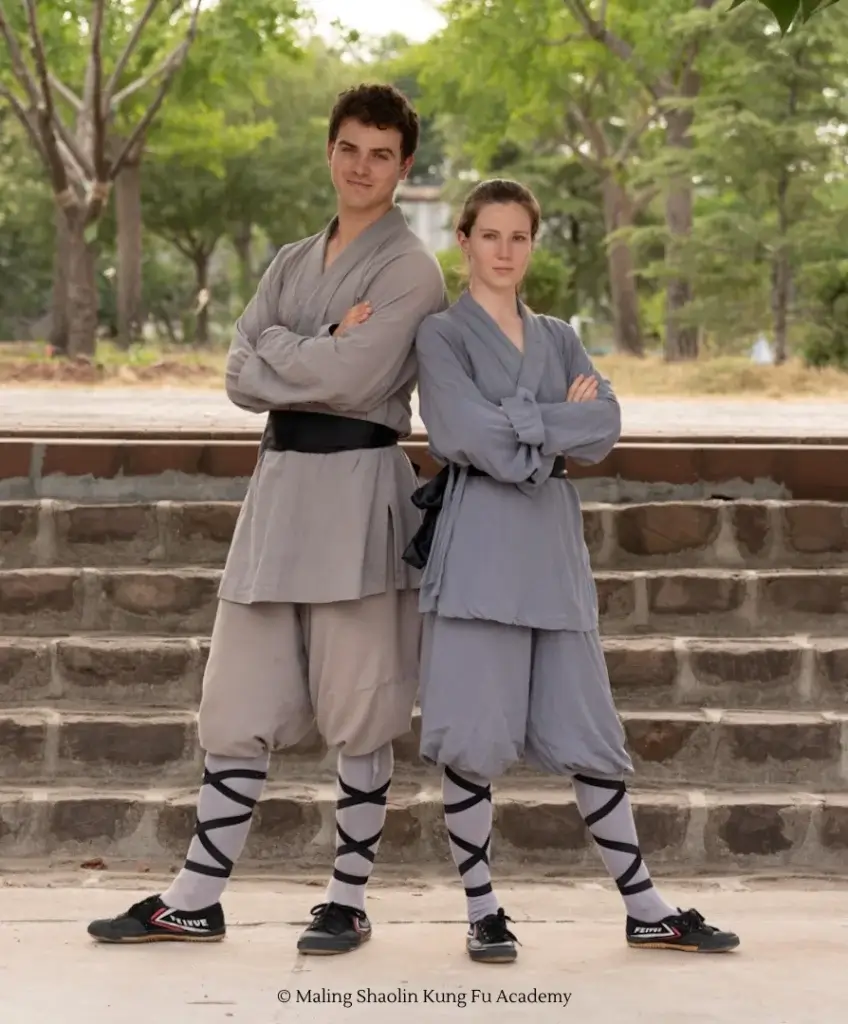
Additionally, students may participate in optional Monk Suit Days, held every Wednesday and Friday. Monk suits are available for purchase in the school shop and are highly recommended for long-term students or anyone who wishes to take home a unique memento of their Shaolin journey. Each monk suit includes:
A traditional Shaolin-style top and pants
Monk socks
Leg bands
A waist sash or belt
Wearing a monk suit offers more than just a distinct look—it connects students more deeply with the visual and spiritual heritage of Shaolin. Also sourced from Dengfeng, these outfits are the traditional garments worn by warrior monks and reflect centuries of Chinese martial culture. Many students say that wearing the monk suit helps them feel more connected to their training, more grounded in their movements, and more immersed in the environment.
While monk suits are not required, they are especially popular among students who are staying longer or who want to mark their time in China with something meaningful. Some wear them during meditation, on special training days, or simply as a way to embody the discipline and mindset of traditional Shaolin kung fu.
SPENDING MONEY
While training at Maling Shaolin Kung Fu Academy, students are provided with full room and board, including three meals a day, so your basic living expenses are already covered. However, it’s still a good idea to bring some pocket money for personal needs and weekend activities. How much you’ll need each month really depends on your lifestyle and habits.
Some students live “like a monk” and rarely leave the academy grounds. These students may spend as little as ¥200–¥500 RMB per month (about $28–$70 USD)—usually just for toiletries like shampoo, laundry soap, and toilet paper (which isn’t provided in Chinese bathrooms and must be purchased personally) and maybe a few snacks. You’ll also want to budget a bit for cleaning supplies for your room and basic personal hygiene items.
Other students enjoy visiting the local village on weekends, going out for meals, grabbing bubble tea, snacks, or even singing karaoke. For these “weekend warriors,” a budget of around ¥500–¥1200 RMB per month ($70–$170 USD) is usually plenty to enjoy local life without overdoing it.
Then there are the adventurous types—the students who use their weekends and holiday breaks to explore China. Whether it’s taking high-speed trains to nearby cities or flying to different provinces, travel costs can add up quickly. These students might want to budget anywhere from ¥1500–¥3000 RMB per month ($200–$400+ USD), depending on how often and how far they go, and whether they stay overnight in hotels or visit tourist attractions.
Keep in mind that China is generally affordable compared to many Western countries. Street food, bubble tea, and snacks are cheap, and public transport is efficient and low-cost. That said, imported goods and brand-name Western products (like certain skincare or snacks) can be expensive, so if you’re particular about your brands, consider bringing them with you.
In short, a modest, comfortable budget for most students tends to be around ¥800 RMB per month. If you’re planning to travel frequently or treat yourself often, aim for ¥1500–¥3000 RMB just to be safe. No matter your budget, there’s plenty to enjoy here—and many students find they spend far less than expected.
You should bring your debit card to withdraw cash from the ATM’s at the local banks. There are currently two banks foreign students can withdraw money from: Bank of China and ICBC. If you need to transfer money from your home country to China, you can use the Academy’s account, and we will get the transfer in cash for you.



